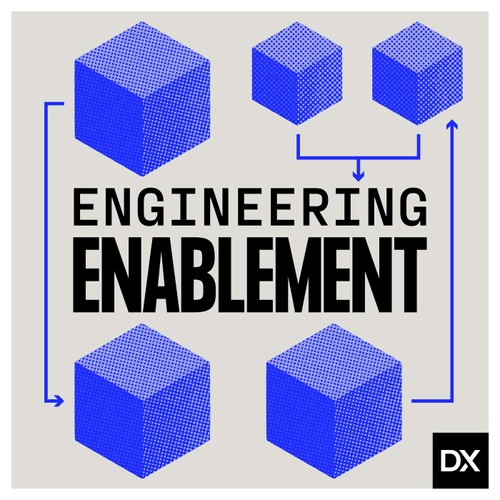
 Engineering Enablement by DX
Engineering Enablement by DX Intercom’s approach to a great on-call experience | Brian Scanlan (Intercom)
7 snips
Mar 8, 2023 Chapters
Transcript
Episode notes
1 2 3 4 5 6 7 8 9 10 11 12 13 14 15 16 17 18 19 20 21 22 23
Introduction
00:00 • 4min
The Challenges of Scaling a Startup
03:51 • 6min
The Importance of on-Call Work
09:43 • 4min
How to Get Engineers Excited and Motivated About Being on Call
13:57 • 2min
The Challenges of Intercom's Growth
16:09 • 4min
The Consistency of Calling
19:53 • 2min
The Tolerance for Unusual Out of Hours Pages
22:13 • 3min
The Evolution of Compensation for on-Call Work
25:17 • 2min
How Dave's on-Call Compensation Changes Impacted the Company
27:07 • 3min
How to Create a Virtual Team for Engineers
30:00 • 3min
The Importance of Active Management in a Team Environment
33:02 • 2min
The Benefits of Volunteering
34:44 • 2min
The Homogenous Tech Stack Is an Enabler for This Type of a Process
36:26 • 4min
How to Boost an Engineer's Reputation
40:37 • 3min
The Importance of Having a Single Point of Contact in an Intercom Team
43:54 • 2min
Terraform: A New Way to Manage Critical Alarms
46:18 • 4min
The Impact of Being on Call on Your Life
49:57 • 3min
How to Calculate Compensation for on Call Work
52:40 • 2min
How to Compensate Engineers for on-Call Work
55:06 • 2min
The Importance of Compensation for on-Call
57:17 • 3min
How Spotify's Intercom Squad Model Has Changed Over the Years
01:00:07 • 4min
The Balance of Customer Impact and Customer Experience at Intercom
01:04:01 • 3min
How to Fine-Tune Your on-Call Experience
01:07:07 • 3min
